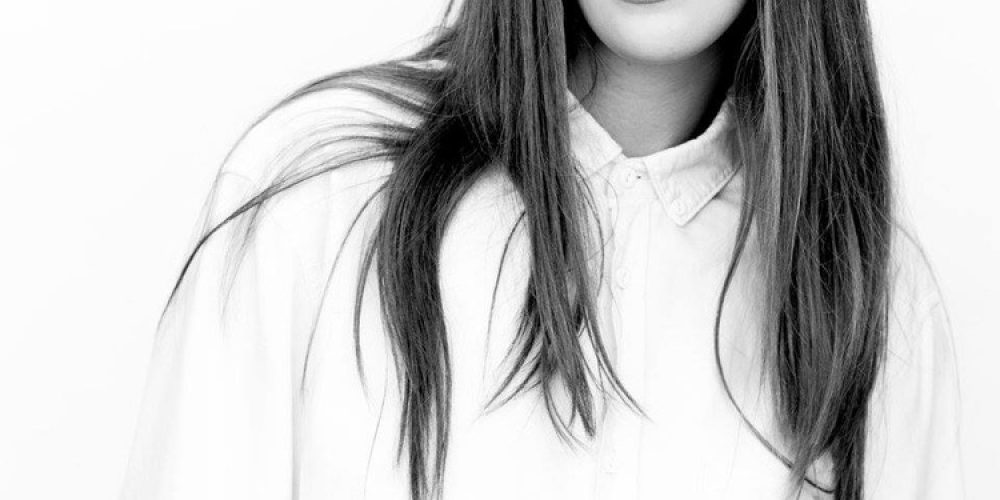Andrea Albanese is the mother of Karis Dawson, a teenaged Canadian model from Vancouver. In June 2014, she travelled with her daughter to Tokyo, Japan for a two month modelling contract. We spoke to Andrea about what it was like living in a model apartment, her thoughts on the industry, her time spent in Tokyo, and what advice she would give to parents whose children want to model.
The Business Model: How did your daughter first tell you that she wanted to model?
Andrea Albanese: She was about eleven and had mentioned modelling a couple of times. ‘America’s Next Top Model’ was one of her favourite TV shows and she seemed to have a good eye for picking out the girls that would do well as well as being quite interested in the entire process. She told me then that she was wanted to be a model but I didn’t really think much of it at the time. She was quite photogenic but she was quiet and could sometimes be seen as shy so I didn’t think it was an option.
TBM: Were you initially hesitant about allowing your daughter to model?
AA: Oh yes. I was initially resistant to the entire idea and told her she had to wait until she was taller and got her braces/retainer off hoping she would lose interest. I modelled briefly in Tokyo in the 1990s and I knew how difficult it could be for your self-esteem. I didn’t know if she would be able to handle the rejection at such a young age, and I didn’t know if I wanted her handling so much rejection at a young age. Also, she wasn’t overly comfortable on stage when she danced and she hated acting so I didn’t think she could manage it, or do well at modelling. I made her take an acting course which she hated.
TBM: What was your view of the industry prior to your daughter entering it? How did that change?
AA: I thought it was pretty harsh and that, overall, people were not kind. I have found that most of the people Karis has worked with in Vancouver and Tokyo have been very kind and interested in her as a person. Maybe it’s because of her age, but the worst she’s had is indifference and sometimes impatience if it’s a big show and there are a lot of inexperienced girls. Karis has taken ballet for most of her life and some of her teachers have been extremely unkind and intensely critical. She is not overly sensitive, luckily.
TBM: What’s something about the industry that you do or do not like and would like to see changed?
I think that you need to realize that modelling is what it is. They’re always going to use tall slim girls on the runway because the clothes hang better on them and designers want their clothes to look as good as possible. Photographers want models that photograph well. I think there have been some steps toward diversity and inclusion which is good but I don’t anticipate the industry changing that much.
I understand why young girls are chosen as they are slim, but I think an age limit is not a bad idea. When it’s all said and done it’s an adult job and I hate to think of kids missing out on their last few years of being a teenager to work. It’s can also be dangerous to have young, impressionable, and possibly immature girls being treated as adults and being in adult situations, particularly if they are not living with a parent or guardian. And no, the chaperones at the model apartments don’t count as guardians.
TBM: What has been the hardest part about being a parent to a model?
AA: I think it is a very fine line for parents, as your child is essentially doing an adult job when they are still a child. It’s not like a sport; it’s often unfair and there’s no one you can complain to if someone hurts your child’s feelings. It can be a very harsh industry and you really have to be sure that your child can take it and that they want it, not you. There are sometimes politics at play and people can change their minds at the last minute and they don’t consider the feelings of the model. It’s a job.
You need to support them and make sure they are safe, but not be in the mix too much as it’s ultimately their job, not yours. Sometimes it’s difficult to understand why some kids are successful and some are not. Why some are chosen and some are not. It’s hard not to micromanage and you need to not be that mother that pesters everyone as it can reflect badly on your child. The industry is complex and mysterious to those on the outside and you really need to understand what’s going on, how things work and all the different types of modelling. It’s important to educate yourself so that when you do ask questions, you’re not wasting your agent’s time and that’s why it’s important to have a great mother agent that will educate parents or steer them towards some resources. But at the same time, don’t get too into it, as it’s not about you.
TBM: Many parents are apprehensive about their son or daughter becoming a model because they’re worried it would interfere with their education. How do you help your daughter balance her high school education with modelling?
AA: My daughter will be going to New York after she graduates. She has a contract, a visa, a work permit, and a social security number and I think that if she has this opportunity, she should go for it. She can always go to university afterwards. If it doesn’t work out, she can come back after having a grand adventure. This is not the prevailing wisdom in my neighbourhood and I am often met with horrified and/or sceptical glances when I tell people my daughter is going to model in New York and not go to university right away.
In terms of high school, my daughter was in the Super Achievers program for dance where classes finish at 1pm which made it a bit easier for her first year and a half. However, she did have to quit ballet and it was simply not possible to keep up technically and miss ballet class to model. This program is available for athletes or dancers who compete at a high level only, not for kids that work.
You need to teach your child how to manage a daytimer and answer emails. Karis’s agent insists that she answer her own email now that she is sixteen. I am copied on everything, but Karis has to answer and learn to keep her own schedule.
It is essential to keep up with school and know what’s coming up in terms of tests and assignments. If your child can’t do this on their own, you might want to help them, as it’s important to keep your academic options open until you’ve made a decision. Bring homework to shows or shoots in case there is downtime—there often is a lot of waiting around if it’s a big show or a shoot with a lot of people that need hair and make-up.
If it’s possible to do any courses online that’s a good option to reduce the course load during the year. Check and see if there are any courses that give credit for hours worked (paid or unpaid). Any classes that meet less often and have online components are helpful (this is called ‘Blended Learning’ in our school district).
Make sure you know the graduation requirements and make sure your child has them all but don’t go overboard if they plan to model after high school. It is very difficult to have a full academic course load and model during the year. In our school district, there are certain requirements in terms of courses and a specific number of credits needed to graduate, however, if you take what you need for university [it’s more].
Consider courses that might help with a career in modelling such as art and design, photography, marketing, accounting, fashion industry, sewing, physical fitness, art history, etc.
Make friends with the guidance counsellor at your child’s school. My daughter has been fortunate enough to have her afternoons free at 1pm this year and we are hoping her spares will be in the afternoon next year as well.
TBM: Did/do you ever worry for her mental or physical health?
AA: I would not let her model if I didn’t think she could take it mentally. I explained modelling to her as a sales job. You are selling any sort of product or consumer goods, or a feeling, lifestyle or look. The casting director, designer or stylist has an idea in their mind of who they’d like to sell that look and what that person looks like. You may or may not be that person. It’s not that you are too fat/thin/ugly/dark/pale etc, it’s just that you don’t fit the image of who they want to ‘sell’ their product or idea. Sometimes they change their minds and go with something completely different, sometimes they don’t.
In terms of physical health, my child does not have the type of personality that would lead her to limit her food intake. Ever. For any reason. If she did, I would not allow her to model. My friend’s daughter modelled for a very short time and started becoming completely obsessed with food. Her mother pulled her from the agency and she has not modelled since.
You need to be thin and have certain measurements to be a working model. There has never been any sort of mystery about it and it’s pretty much full disclosure from Day One. Yes, you have to work hard to stay in shape and eat well, but you have to work hard at pretty much anything you do whether it’s school, a job or modelling. It’s unhealthy to be obsessive on any level and kids need to learn to manage themselves in whatever life path they choose.
TBM: You accompanied your daughter on a modelling trip to Tokyo. Did you find the host agency to be accommodating while you were on stay with your daughter?
AA: Satoru was extremely accommodating. They allowed me to stay at the model apartment for no cost and share a room with Karis. I had to pay a nominal fee for electricity but that’s it. They were very kind; however, I did not accompany Karis on castings and only went with her on the subway to the jobs—I never stayed.
TBM: What did your days look like while your daughter was busy with castings during the day or jobs?
AA: I lived in Japan in 1990-1991, so I was thrilled to return. I have an old friend [in Tokyo] so we got to hang out a lot. I exercised every day, either in our room or running up and down the stairs at the temple that was almost in our back yard. I did laundry and bought food. I went shopping — I love Japanese drugstores — and to many museums and temples, and I wrote a blog post for every single day I was in Tokyo. I checked out some of my old hangouts and neighbourhoods. When Karis wasn’t as busy with castings, I dragged her with me to various museums or I took her to ballet class.
TBM: Did you stay the entire contractual period (60 days)?
AA: No, we left about 3 weeks early. There was literally no work for many models around town at the time (late July). She had made friends with some girls from other agencies (Bravo, Donna and Wizard) and it seemed like no one from any agency was working including the other girls in our apartment. Karis’s mother agent, Lizbell, had work for her at home so we decided to leave with Satoru’s blessing. They felt there wasn’t any reason to keep her as the holidays were coming up and she wouldn’t likely book much before we had to leave on August 27th anyway. I was unhappy to go home early but my husband and dog were happy to see us. Karis was happy to be home for about a week then wished she had stayed in Tokyo.
TBM: Did you ever accompany her on any shoots?
AA: I went with her on the subway and to the office of the first shoot and met the stylist but didn’t stay. Before going to Tokyo, we were told by the scout that organized her contract that going to work with the girls is an absolute no-no in Tokyo. I don’t accompany her when she works locally either. I go in and meet everyone and make sure she’s OK, then leave and I’ve done it that way from the very beginning. Her mother agent is extremely careful whom she allows to work with her Development girls and the mums or dads are always welcome to stay if they choose, though I’m pretty sure that everyone on set is much happier if the parents don’t stay. My feeling is that this is Karis’s deal and she needs to be able to manage it on her own.
TBM: What was it like living in a model apartment?
AA: Surprisingly awesome. Initially I was planning on renting our own apartment and I’m glad I didn’t for a couple of reasons. The first being the cost. I would have paid about $5000/month which is a significant financial risk and the model apartment was paid for up front by Satoru. Secondly, it was great for Karis to meet the other girls and be ‘part of it’ and to have some other kids to do things with instead of just hanging out with me. I’ve known other girls who’ve stayed in separate apartments with their mums and they didn’t enjoy their trips quite as much as they didn’t have the same opportunity to connect with the other girls. Thirdly, it was a nice apartment and was decently equipped and well-located which was great since it was so freaking hot and we had to walk everywhere. I also enjoyed meeting the other girls and they were a wealth of information.
To be honest, I was not optimistic that I would be able to hack it at the model apartment and thought I’d be finding my own place by week two; however, the girls were really lovely and friendly and there was no reason at all to leave. I would recommend having your child stay in the model apartment if at all possible, especially if they’ll let you stay too. It gives them a real taste of what it’s really like living as a model in a foreign country. In New York, mums were not allowed to stay in the model apartment so I think it’s different with every agency and possibly varies depending on the age of the model. Karis enjoyed the model apartment in New York in spring break — I did not accompany her — and met a couple more nice girls who were also very helpful; it’s truly one of the best ways to get a different perspective from what the agency says.
TBM: What advice would you give to other parents on how to tell if modelling is an appropriate job for their child?
AA: First of all, the child has to want it for themselves; just like being a dance mum, this is not about you as a parent. It’s a crazy hard job that comes with immense opportunity, but it’s also harsh and fickle. Sometimes your kid is incredibly popular and sometimes they’re not. You need a good agent that will tell you if they actually have a chance to get a significant amount of work, and will be able to advise you, guide you and manage your child’s career to make the best of any opportunities that come up.
In terms of the child: tall and naturally slim. I found that the girls who were about 5’7”-5’9” worked quite a bit in Tokyo. The Asian markets are completely different and you really need to educate yourself — i.e. read TBM’s e-book on Tokyo — and understand what they are looking for in terms of height and measurements. If you have really big feet, bigger than size 8, it can be a problem. If you are 5’10”+ it can also be a problem — the clothes are small. For other markets 5’9” seems to be the minimum and measurements vary based on the market and type of modelling. You can easily look up any agency worldwide and check out the average measurements of their models.
They will need to be able to commit to a regular exercise and healthy eating plan if they want to pursue modelling as a career. They need to be able to do this without you nagging them.
They must take corrections well and be aware of where [their] body is in space. My daughter danced most of her life and it has helped a lot. Photographers have told me that one of the reasons they like working with her is that they never have to give her the same correction twice and that she gets the work done quickly which saves them time and money. It’s a job and you need to know how to do it well. Watch videos on YouTube and practice.
My daughter is NOT an actress and this has served her well so far. When models are on the runway, designers want the audience to look at the clothes, not the model, so being the charismatic, bigger-than-life actress might not be the best idea, on the runway anyway. However in the Asian markets they want more personality and it would definitely be a bonus for commercials or TV appearances. My daughter isn’t really interested in this type of work.
Be prepared to pay and pay for quite a while. For clothes, makeup, haircuts, exercise, dance classes, skincare products, parking and gas, travel, website fees, photos and comp cards, etc. Note, this should not be more than a few hundred dollars a year. Yes, my daughter makes money, but if I charged her for everything, we’d probably be about even. I look at it as an educational and training process. Her mother agent spends an enormous amount of time developing the girls; coaching them; showing them how to pose, how to walk and talk to clients and agents; how to dress; how to wear makeup; how to take care of their skin as well as advising them on their career options.
They should be resilient with good self-esteem. It’s hard to face rejection on a daily basis especially when you’re at a casting with a hundred pretty faces. Models need to be confident and realize that it’s not personal.







Comments 0